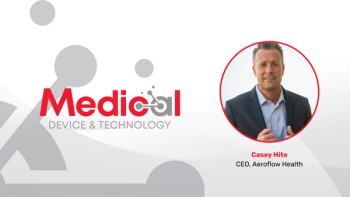
Cash-only practice considerations
Going cash-only in your practice means getting out of the insurance-billing business and collecting from patients.
Q: How should I go about establishing a cash-only practice?
A: We get this question from time to time from primary care physicians (PCPs). It represents a yearning for a return to pre-managed care practice. That period-prior to about 1990-corresponded to the golden age of medical wealth creation for physicians. Medicare was a bonanza, and Medicaid meant that even economically-disadvantaged patients could break free of the county hospital charity ward. Returning to a simpler time is tempting. So how do PCPs do it? Very carefully.
It's most prudent to ease into an undiscounted practice as you would a hot bath: gradually. First, consider the worst-paying discounted insurer contracts to see if you have enough patient volume from more lucrative contracts. When dropping payers, offer to see existing and future patients with that coverage on a cash-at-contact basis, providing everything they need to submit their claims (a copy of the superbill) and coaching service on how to do it if they need it. Then, one at a time, resign the remaining contracts on the same basis, allowing time for the practice to stabilize after each cut. This strategy allows the practice to reverse course if sufficient patients don't stay with you.
In a concierge practice, the entire character of the practice changes to something most patients never have encountered. It's a practice that enters into a mini-HMO plan by charging an annual membership instead of fee-for-service itemized billing. It's only for primary care and not a very attractive idea for either the patient or doctor. It works in Canada and Great Britain, where access to premium-service physicians is difficult. That's still not a problem here. Due to the small number of patients for each physician, the insurance concept of spreading utilization risk over large numbers doesn't apply, which means either the patients won't get value for their money or you could get hit hard by some heavy users.
The cash-at-contact and concierge styles share some characteristics, though. Both are, at the end of the day, strategies to charge more. Both require a special doctor/patient bond that creates patient loyalty, allowing an increase in fees. Neither will work well for procedural specialists. You may have more patients without health insurance because of job losses or employer cutbacks. That doesn't make them deadbeats.
Cash practice works best with people who have up to around $800 per year for primary doctor bills for the family. Doctors shouldn't jump to conclusions about who these patients are, because even people who are out of work get sick and have access to some money, if only by giving up something else. Two movie tickets, popcorn, and Cokes equates to an average family practice office visit, and lots of families spend their money that way every weekend.
Send your practice management questions to
.
Newsletter
Stay informed and empowered with Medical Economics enewsletter, delivering expert insights, financial strategies, practice management tips and technology trends — tailored for today’s physicians.






